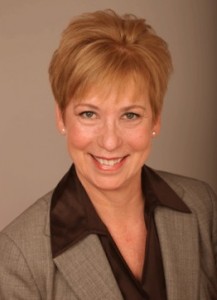Panel discussions are most interesting when the panelists represent similar disciplines across a variety of industries. At the recent IBF Conference in Scottsdale, each of the 4 panelists were asked about various aspects of the planning process within their respective organizations. The range of topics included the single forecast plan (the one number plan), execution of the plan, use of metrics, frequency of the S&OP review and, of course, talent within the organization. There appeared to be a great deal of commonality and agreement on the various business approaches between the respective organizations. As we might expect, the degree of integration and frequency varied. Importantly, they all shared a very similar view regarding the “perfect candidate profile” and the increasing need for these individuals to develop and exhibit strong leadership skills.
In today’s highly competitive workplace, questions regarding the “perfect candidate profile” are always intriguing. The varying demographics of the workforce, coupled with the increasing use and sophistication of technology and the required “speed to market” make the “perfect candidate profile” an interesting discussion. Of course in our field of business forecasting and demand planning, we know that sound analysis and mathematical skills are a prerequisite for success. However, the panelists resoundingly agreed that the number one skill required for success is the ability to lead and to confidently influence across the organization, and this ability requires “soft skills”. It was also acknowledged that these so-called “soft skills” were not necessarily an innate attribute and required training and development. Randy Wilp, Leader of Global Commercial Forecasting at Merck & Co. Inc shared his experience utilizing an outside organizational behavior coach in his effort to build and foster the communication and “soft skills” of his team.
In my own prior experience with managing large inventory planning teams, it has been critical to the success of my organization to be able to not only build a solid forecast and replenishment strategy, but also to be able to communicate this plan to the appropriate business partners. The successful communication and “buy-in” lead to the best execution. This required the planners to be able to communicate their forecasts and plans in easy to understand terms, while clearly articulating the business benefits. It is usually best to save the “geek speak” for like-minded peers.
As forecasting and planning organizations begin to take on a more front and center role within organizations, should we begin to consider the aspects of more robust leadership training? There is a recent post regarding new trends in Supply Chain Management Review which discusses preparing students for the work world in a pragmatic way. Perhaps it is also time to give greater consideration to the “soft skill” and leadership development as well. What are your thoughts?
Joy White
Supply Chain Leader
IBF Ambassador



